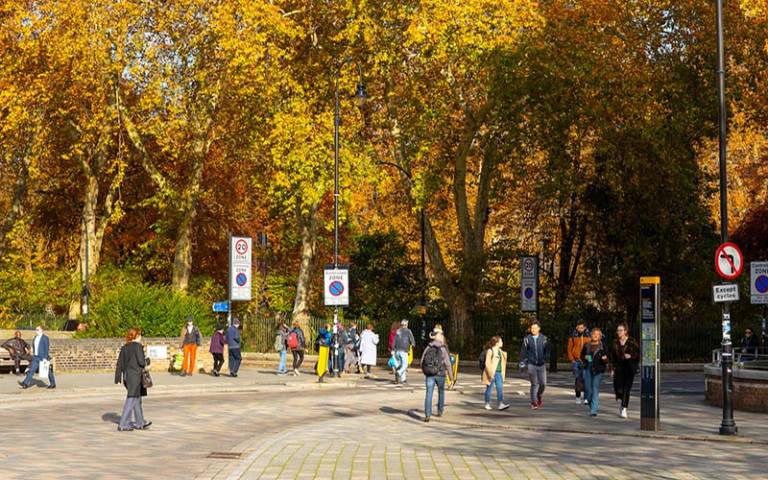Trees and the New Urban Ecology - virtual event
19 May 2020, 2:00 pm–3:00 pm

Live discussion and Q&A on the place of trees in the urban ecosystem as part of the Urban Tree Festival, with Prof Kate Jones and Dr Gabriele Manoli.
This event is free.
Event Information
Open to
- All
Availability
- Yes
Cost
- Free
Organiser
-
Neil Sinden – CPRE London07725555460
Location
-
Online14.00 BST15.00 CEST21.00 CST
UCL Urban Laboratory is collaborating with CPRE London to host this live online discussion as part of the 2020 edition of the Urban Tree Festival.
We are pleased to be joined by UCL researchers Prof Kate Jones (UCL Division of Biosciences) and Dr Gabriele Manoli (UCL Department of Civil, Environmental and Geomatic Engineering) for a conversation chaired by Dr Clare Melhuish (UCL Urban Laboratory) and introduced by Neil Sinden (CPRE London).
We will asses the important direct and indirect health benefits of access to natural environments in cities, and review new results on the effects of vegetation on urban climate and hydrology.
- Rewildling cities – good for our health? (Kate Jones)
Over 55% of the human population is now living in cities, growing to an estimated 2.5 billion people by 2050. Although urban populations often have better socioeconomic livelihoods, city living is associated with a number of adverse human health effects. Emerging evidence suggests that natural environments in cities can offer important direct and indirect health benefits to people. Prof Kate Jones will review these ‘nature’s benefits to people’ in cities, with a particular focus on woodland.
Kate Jones is Professor of Ecology and Biodiversity at University College London and has held appointments at the Zoological Society of London, University of Cambridge, Columbia University and Imperial College London. Her research investigates the interface of ecological and human health, using statistical and mathematical modelling to understand the impact of global land use and climate change on ecological and human systems. Kate’s research also develops applied artificial intelligence tools for monitoring ecological health, particularly for monitoring ecosystems acoustically and runs a number of wildlife citizen science programmes. Kate has written over 100 articles and book chapters in prestigious journals such as Nature and Science and is a scientific advisor for a number of international biodiversity charities and chaired The Bat Conservation Trust for 9 years. In 2008, Kate won the Leverhulme Prize for outstanding contributions to Zoology. Kate is the director of the Nature Smart Research Centre in the Institute of Future Living at the new UCL East campus at the Queen Elizabeth Olympic Park opening in 2022.
- The Mathematics of Urban Trees (Gabriele Manoli)
Green urbanism, eco-cities and innovative green infrastructures are being promoted and adopted worldwide to improve urban well-being. However, all these efforts are often guided by aesthetic, conceptual, and qualitative principles rather than a quantitative understanding of the underlying biophysical processes, scales and feedbacks. New results on the effects of vegetation on urban climate and hydrology will be presented. Mathematical models represent powerful tools to identify efficient urban vegetation strategies but a multidisciplinary approach that bridges the gap between many subdisciplines (from physics, to ecology, architecture, economy, and sociology) is required to guide the design of healthier, more sustainable and more inclusive cities.
Gabriele Manoli is a Branco Weiss Fellow and lecturer in Environmental Engineering at University College London where he leads the Urban Ecohydrology Lab. His current research focuses on the processes, scales and feedbacks linking the functioning of cities to their eco-hydro-climatic conditions with the aim of introducing quantitative tools in the design of future green cities.
Image: Gordon Square Gardens pictured from Byng Place in London © UCL Digital Media
 Close
Close

